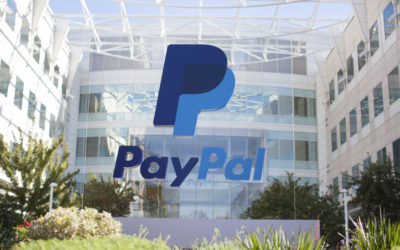Indian messaging app Hike acquires hardware startup Creo
Indian messaging app Hike acquires hardware startup Creo.
India-based messaging app Hike is back on the acquisition trail after it picked up Creo, a hardware company that previously released smartphones, streaming devices and an operating system.
“The Creo team will begin work on a developer platform to enable third party developers to build services on the Hike platform,” a Hike spokesperson said.
Creo recently slashed the price of its Mark 1 smartphone, and it confirmed on its website that it will be its last.
“To build our next product, we need all the focus and good luck we can.
Bangalore-based Creo was founded in 2013, it had raised $3 million and it has plenty of links with Hike.
Bharti Mittal rejected the deal at the time saying that Hike talks to many companies at any given time.
The deal is Hike’s third acquisition.
It has raised $261 million in total.
Featured Image: Hike
YogaWorks (YOGA) Completes Discount IPO
YogaWorks (YOGA) Completes Discount IPO.
YogaWorks Raised $40.2 Million, Down From Expected $65 Million YogaWorks is the first public yoga studio.
It priced 7.3 million shares at $5.50 per share, raising $40.2 million.
Great Hill Partners bought YogaWorks in July 20114 for $45.6 million.
Company Is Still Losing Money YogaWorks has 50 company-owned studios and also operates MyYogaWorks.com.
The company gets revenue from one-month membership and paid-in-full six-month and annual membership.
The net loss for the quarter rose to $2.6 million in the first quarter 2017 from $1.5 million in 2016.
Are you a thoughtful investor looking for uncommon investment ideas?
Tim and Kim share 50 insightful equity trade’s per year for $100.
We provide the first two ideas at Stirling Strategic Investor for free.
Saudi Aramco is reportedly leaning towards listing its IPO in New York
Saudi Aramco is reportedly leaning towards listing its IPO in New York.
Thomson Reuters (Reuters) – Saudi Arabia favours New York for the main foreign listing of state oil giant Aramco, even though some financial and legal advisers have recommended London as a less problematic and risky option, people familiar with the matter told Reuters.
Several advisers have recommended London for the main listing outside Saudi Arabia, sources familiar with the matter told Reuters last month, partly due to concerns that a U.S. flotation would require greater disclosure of sensitive information on Aramco.
One senior industry source, however, said New York is likely to be the favoured option for the Saudi government and Prince Mohammad.
The New York and London stock exchanges declined to comment.
For the valuation, much depends on the outlook for oil prices, which are currently only half what they were three years ago. “That’s why Saudi Arabia needs a higher oil price for the IPO now, to get a better value for Aramco,” the source said.
The back-and-forth internal talks between the crown prince, Energy Minister Khalid al-Falih, Aramco management and the many financial and legal advisers on some of these main decisions have raised speculation that the listing, which is expected to be in the second half of 2018, could be pushed further out.
Finance Minister Mohammed al-Jadaan, a lawyer by training, is most attuned to the legal risk of the four senior government officials advising the crown prince on the listing decision, the source said.
Saudi industry sources dismissed JASTA as a reason for not listing in New York, noting that Saudi Arabia is believed to have hundreds of billions of dollars of investments in the United States already, including Aramco assets.
Pfizer Alum’s China Startup Is Said to Select Banks for IPO
Zai Lab picks Citigroup, JPMorgan to arrange U.S. offering Drug developer plans IPO that could raise about $150 million Zai Lab Ltd., a Chinese drug developer working on cancer treatments, has picked banks to arrange a planned U.S. initial public offering that could raise about $150 million, people with knowledge of the matter said.
The Shanghai-based biopharmaceutical company, started by former Pfizer Inc. senior scientist Samantha Du, is working with Citigroup Inc. and JPMorgan Chase & Co., according to the people.
It is targeting a market capitalization of about $1 billion, one of the people said, asking not to be identified because the information is private.
Zai Lab plans to start taking investor orders as soon as September, the people said.
China’s pharmaceutical market has been given a boost by entrepreneurs like Du, known as “hai gui” or “sea turtles,” who returned to the country after stints working or studying overseas.
Representatives for Zai Lab and Citigroup declined to comment, while a representative for JPMorgan didn’t immediately respond to a request for comment.
Building Pipeline Zai Lab has established its own early-stage drug discovery team focused on immuno-oncology.
The company said in June that it raised $30 million in Series C funding, following a $100-million Series B last January from a group of backers including Advantech Capital and OrbiMed Asia.
BeiGene Ltd., a Chinese developer of immuno-oncology drugs, has more than tripled since it began trading in the U.S. last year and announced Thursday it plans to raise $125 million in a follow-on share sale.
BGI Genomics Co., a unit of the world’s biggest DNA-sequencing group, has surged more than sevenfold since its Shenzhen debut last month.
Can Didi Justify Its Valuation? — WSJ
Didi has reached beyond car services, investing in Ofo Inc., one of China’s top bike-sharing apps, and in Ele.me, a major app-based food delivery service.
To some venture capitalists, Didi seems to be doing what they usually do — raising money from investors and betting on startups they see as having growth potential.
In either case, analysts and members of the investment community say Didi isn’t behaving like a startup — even if it is the second most-valuable startup in the world with a $50 billion valuation — just behind Uber. “Unprofitable startups should use the capital they raise on operations.”
In the year since it vanquished Uber after a depleting, subsidy-fueled battle for the China market, Didi is still unprofitable and has become more of an investor in other startups than a cutting-edge disrupter.
Abetting this is a winner-takes-all trend in the internet industry.
That’s more than the $12 billion Uber raised in total in seven years.
Bulked up with cash and seemingly dominant in its home market, Didi needs to justify its $50 billion valuation more than ever — even its defenders say so.
Even so, investors are still likely to lavish funds on the company because its position as China’s biggest taxi service and its sizable war chest make Didi a safer bet. “The logic of China’s venture investing market is that it’s not a problem if money can solve it, from talent, technology to market share,” an investor in Didi told me.
Protostarr – a Funding Platform for Rising Stars
Adding to Protostarr’s value proposition is Y-Combinator’s request for startups.
Business Insider states that the idea is something venture capitalists are begging to fund.
Protostarr accelerates the discovery of new talent with its platform.
“We going to change lives,” said Joshua Gilson, CEO of Protostarr.
“The next generation of online celebrities will be made through our platform.” With excitement buzzing around Protostarr’s upcoming ICO, the startup seems to have landed on a DApp project that could bring cryptocurrency out of a difficult to comprehend technical world into an entertainment industry that gives blockchain the exposure it needs to earn the public’s trust at large.
Crowdsale investors looking for a hot ICO should mark their calendars for Protostarr’s launch on August 13th.
With rising popularity in YouTube and constant discovery of new talent, investors have a great opportunity to earn ethereum from contracts created on Protostarr.
Interested parties can keep up with Protostarr’s developments on Twitter, Facebook, and their Slack channel.
About the author Talha is a Pakistani writer and editor who’s online portfolio at three multi-million viewership websites consists of: Bitcoin and altcurrency articles 2, viral news articles, and tech articles.
Holding a B.Sc.
WeWork acquires Israeli startup Unomy to boost its enterprise sales efforts
Global co-working behemoth WeWork is best known for providing flexible office rentals to startups and other small businesses, but enterprise clients are becoming an increasingly large portion of its business.
With that in mind, WeWork has acquired Israeli startup Unomy to help its team sell enterprise clients on the idea of opening up offices in its workspaces around the world.
With plenty of new funding, WeWork has been investing heavily in opening new shared co-working spaces in places like China, Japan and Southeast Asia.
Enterprise customers already make up 30 percent of the company’s total membership and 30 percent of its monthly sales, but it’s looking to increase those numbers.
Unomy has built a sales and marketing intelligence platform that is designed to help salespeople connect with potential customers.
“Their B2B intelligence layer will be able to help us enrich our data sets when we’re driving sales in the enterprise market,” Gura told me.
According to him, integrating Unomy into its existing product set will help B2B sales processes run even faster and convert more customers.
Terms of the deal were not disclosed, but prior to the acquisition Unomy had raised $2.4 million in outside funding from investors that include JANVEST Capital Partners, Altair Capital, Leta Capital and a series of angel investors.
WeWork is hiring Unomy’s 20 employees to work out of its Tel Aviv office as part of the digital product team under Gura.
It eventually plans to close Unomy’s business to outside customers but will be looking to help transfer customers to similar products.
Tetra raises a $1.5M seed round to bring deep learning to voice transcription
Tetra raises a $1.5M seed round to bring deep learning to voice transcription.
There are a million and one services for voice transcription on the market.
But even with just one job to do, I’ve never seen a service that can handle the long tail of vocabulary used in the real world.
This is particularly challenging if you’re a startup trying to sell your service to enterprises that rely on accurate transcription for their operations.
These customers want Tetra to create a permanent record of conversations with industry experts.
Other, more traditional, enterprise use cases exist as well, like within sales.
This seems to be working out fairly well for the company.
The team’s approach is heavily dependent on being able to optimize which parts of conversations are sent to which cloud API.
For example, some NLP service providers are better at understanding speech relating to movies, music and media, while others are better at numbers, etc.
Tetra includes search functionality so users can quickly find specific sentences within traditionally unsearchable voice recordings.
Snapchat’s Evan Spiegel Is $1 Billion Poorer Than Before IPO
Snapchat’s Evan Spiegel Is $1 Billion Poorer Than Before IPO.
On March 2, Snapchat made its stock market debut, with an initial public offering priced at $17 and shares rising to $24.48 by the end of the trading day.
In the process, cofounders Evan Spiegel and Bobby Murphy made a combined $2.8 billion, becoming the only self-made billionaires in the world under the age of 30 to own a publicly traded company, according to Forbes.
It’s been all downhill from there.
Shares were trading Thursday morning at $13.48.
That puts Spiegel’s current worth at $3.1 billion, Forbes says — lower than before Snapchat went public.
And it could fall even further.
On Thursday afternoon, Snapchat will issue its second-ever earnings report.
Analysts are expecting a loss of $366 million, or 30 cents a share, FactSet data show — wider than the company’s loss of $115.9 million a year ago, according to the Wall Street Journal. “Wall Street will expect to see continued user growth and increased engagement despite Snap’s arguments that it’s prioritizing quality over quantity,” Axios media reporter Sara Fischer writes.
PayPal to acquire Swift Financial to bolster small business lending
PayPal to acquire Swift Financial to bolster small business lending.
Global payments processing company PayPal announced this morning that it has agreed to acquire Swift Financial, which provides small business owners with working capital.
Terms of the deal were not disclosed, but the acquisition will give PayPal better tools to expand its own Working Capital product.
For PayPal, the acquisition should bolster a portion of the company’s business that has seen increased competition over the years.
With that in mind, PayPal has acquired Swift to add to its own underwriting capabilities and expand the amount of data it can use to assess the creditworthiness of its customers.
Doing so should expand the amount of capital it makes available.
“We know and value Swift’s technology platform and people, and we believe their talent and capabilities will further strengthen our overall merchant value proposition,” PayPal’s Darrell Esch wrote in announcing the deal.
“Building upon an existing commercial relationship, the acquisition of Swift Financial will enable us to better serve small businesses by enhancing our underwriting capabilities to provide access to affordable business financing solutions to more businesses to help them grow and thrive.” Since being founded in 2006, Swift Financial has provided funding to more than 20,000 small businesses, according to its statement announcing the deal.
In its announcement, PayPal says it has provided access to more than $3 billion in funding to more than 115,000 small businesses since it launched PayPal Working Capital.
Featured Image: PayPal
Blue Apron sees some signs of life as it pulls back its marketing engine
Amid the ever-present specter of Amazon, Blue Apron reported its second-quarter earnings today — where it showed a mixed performance for Wall Street, but also some small much-needed improvements in certain metrics.
The biggest drag on the company was that it said it was paring back its marketing expenses between the first and second quarter, resulting in a 9% decrease in total customers when comparing the second and first quarter this year.
“In the second quarter, we saw an 18 percent year-over-year increase in net revenue, and a $20.6 million improvement in our net loss between the first and second quarters.
We recently strengthened our balance sheet as a result of our initial public offering, convertible note issuance and the expansion of our revolving credit facility,” CEO Matt Salzberg said in the earnings release.
Each customer generated $251 in revenue for the company, which was still well below the performance the company was seeing in the second quarter last year.
The drop in net customers was due to a planned reduction of marketing of $26.1 million between the first and second quarter, the company said.
Following the report, shares of Blue Apron briefly jumped, though it looks like things have once again leveled out as Wall Street continues to temper its expectations for the company.
The company brought in $238.1 million in revenue with a loss of 47 cents per share.
All of this is, once again, with respect to Amazon’s looming threat to its existence.
Its stock price has cratered from where it was when it first started the IPO process — during the middle of which Amazon announced that it would purchase Whole Foods for $13.7 billion.
Contura Energy withdraws public stock offering
Contura Energy withdraws public stock offering.
The company blamed the change on capital market conditions, according to a written statement.
The company’s principal selling stockholders unanimously determined that proceeding with the offering under current market conditions would undervalue the company, according to the statement.
Contura was formed out of the bankruptcy of Alpha Natural Resources.
The company has withdrawn its registration statement on file with the U.S. Securities and Exchange Commission.
“We appreciate the diligent consideration given by our company’s principal stockholders during this process,” CEO Kevin Crutchfield said in the statement.
“Proceeding with an IPO at this time is not the best course for our company or our stockholders.
We will continue to analyze all strategic options and opportunities to maximize the potential of our young company.” As previously disclosed, the company amended its debt agreements to permit an aggregate amount of $150 million of cash to be used for the July 13, 2017, payment of a $100.7 million extraordinary dividend and dividend equivalent and for the potential repurchase of company common stock at any time no later than December 31, 2017.
The company’s board of directors is considering creating a common stock buyback program with the remaining $49.3 million, according to the statement.
The board’s analysis will take into consideration any legal or contractual limitations, actual and anticipated future earnings, cash flow, debt service and capital requirements, tax considerations, the trading price of the company’s common stock, and other factors that the board may deem relevant.
Coinbase raises $100M at a $1.6B valuation amid explosive growth
Coinbase raises $100M at a $1.6B valuation amid explosive growth.
The funding gives the digital currency startup a post-money valuation of $1.6B.
Coinbase has facilitated almost $15B in digital currency exchange in just the first half of 2017, which is 5x more that was exchanged in the entirety of 2016.
They also said that some of this new funding will support scaling customer support and engineering teams.
So what’s next for Coinbase?
While Coinbase was founded as a platform to transact only with Bitcoin, the company has since announced its intent to add other cryptocurrencies with the broader goal of becoming a “digital currency company.” Four years in the making Last summer Coinbase added support for Ethereum, which is now the second most-popular digital currency with a market cap about one-third the size of Bitcoin’s market cap.
So why Litecoin?
SegWit A few months ago Lee and the Litecoin community decided to work on implementing SegWit into Litecoin.
Implementing SegWit will also allow Litecoin to experiment with something called Lightening Networks — which would essentially allow for instant Litecoin payments off the main blockchain, with transactions only settling on the chain when they need to.
Long-term Litecoin Essentially, Lee sees Litecoin’s long-term goal as being able to help Bitcoin alleviate some transactional volume by taking over smaller, less important transactions.
CX Partners-backed SIS ends below IPO price on trading debut
Security and Intelligence Services (India) Ltd made a weak debut on the stock market on Thursday, with its shares losing initial gains to end 7% below the offer price.
Shares of the Delhi-based security services provider closed on the Bombay Stock Exchange (BSE) at Rs 756.70 apiece, compared with the initial public offering (IPO) price of Rs 815.
The stock began trading at Rs 875 apiece and touched an intraday high of Rs 878 and low of Rs 749 per share.
Through margin funding, also known as IPO funding, high net-worth investors (HNIs) borrow short-term capital from various avenues, barring banks, to fund their IPO applications.
This spurt in HNI bids is posing challenges for merchant banks in pricing an IPO.
The public offering comprised a fresh issue of 4.44 million shares worth up to Rs 362.25 crore, besides a sale of 51.2 million shares worth Rs 417 crore by promoters and CX Partners.
VCCircle had previously reported that CX Partners, which made a partial exit via the IPO, would transfer a chunk of its holding to SIS promoters as a reward for delivering above-average returns.
The homegrown private equity firm sold 3.47 million shares, representing around 4.75% stake in the company, through the IPO.
Sign up for our daily newsletter to get our top reports.
Leave Your Comment
Blue Apron shares plunge; posts wider-than-expected loss despite 18% revenue jump
Blue Apron shares plunge; posts wider-than-expected loss despite 18% revenue jump.
Shares of Blue Apron plunged more than 15 percent on Thursday after the company said during its earnings call that it was encountering unexpected costs tied to the start up of its new Linden, New Jersey, facility.
Although the number of customers rose 23 percent year over year, the company said its client base shrank by 9 percent between the first and second quarter due to a planned $26.1 million reduction in marketing expenses.
Here’s a quick look at the earnings report, Blue Apron’s first since going public in late June.
In 2016, Blue Apron had spent about 18 percent of its $795.4 million revenue on marketing.
This helped boost the company’s revenue 18 percent to $238.1 million for the quarter, beating analyst exceptions.
Blue Apron said it will spend between 15 percent to 16 percent of its second half net revenue on marketing.
The company expects net revenue to be between $380 million and $400 million in the second half of the year.
During the second quarter, the company posted a loss of $31.6 million, or 47 cents per share.
However, it closed a penny below its opening price and has fallen more than 37 percent since then.
Startups Still Struggle Finding Funds (Fueling Online Lending’s Growth)
According to a report by the country’s 12 regional Federal Reserve banks, over half of all startups report difficulty in securing loans and 81 percent report having had to dip into their personal funds to cover gaps in their corporate cash flow.
“Given the importance of startups for the economy, the question of startup capital is of central importance,” according to the 2016 Small Business Credit Survey Report on Startup Firms.
“It is very difficult to have access to capital and get loans when you really have no collateral against that except your own cash flow,” Linda McMahon, head of the Small Business Administration, told the Senate Committee on Small Business & Entrepreneurship in January.
“I know that there are a lot of startups that face those kinds of issues in getting capital.” The problem, at base is newness — and that startups tend be associated with much higher credit risk (given the staggering numbers of new businesses that fail within their first five years).
“[Access to credit] is especially critical to these young firms who need funds to weather initial costs and grow,” Claire Kramer Mills, an assistant vice president at the Federal Reserve Bank of New York, said in a statement.
Higher risk profiles, as one might expect, don’t do quite as well — they manage to secure borrowed funds about 45 percent of the time.
“Online providers are rated much better on that dimension.
Where online lenders score poorly is with higher interest rates.
JPMorgan Chase & Co. has announced that as of this week it is expanding its partnership with OnDeck Capital to provide small-business loans using that firm’s application, scoring and approval platform to speed up the process.
That partnership is on the table for four years, and the product — Chase Business Quick Capital — will offer startups loans up to $200,000 for a term of up to two years.
SIS makes modest gains on market debut after $122 mn IPO
Security and Intelligence Services (India) Ltd (SIS) shares made modest gains on their market debut on Thursday after a $122 million initial public offering, suggesting investors were cautious of the stock’s high valuations.
The stock rose as much as 8 percent to a high of 879.80 rupees in early trade, compared with the IPO issue price of 815 rupees.
SIS, the second-largest security services provider by revenue in India and the first company from the sector to go public, also provides cash logistic services including automated teller machine cash replenishment.
“The medium-term outlook will depend on how the company actually performs, otherwise valuations are not comfortable at all,” said Alpesh Thacker, an analyst at Centrum Broking.
Cash logistics and pest control were two of the segments analysts would be watching to gauge the company’s performance, he added.
A subdued broader market after a crackdown and trading curbs on what the authorities call “shell” companies also weighed on the SIS listing.
The company’s IPO last week had been oversubscribed 7 times.
That follows $4 billion worth of initial share sales in 2016 which was the best year for IPOs in six.
Several big listings including those from state-run General Insurance Corp of India and SBI Life Insurance are due in the coming months.
($1 = 64.0100 Indian rupees) (Reporting by Swati Bhat and Devidutta Tripathy; Editing by Stephen Coates)
Health startup Buoy raises $6.7 million to invest in recruitment and research
Health startup Buoy raises $6.7 million to invest in recruitment and research.
Buoy, a startup using an intelligent algorithm backed my medical data to guess what ails you, has raised $6.7 million in Series A funding from F-Prime Capital Partners, FundRx and various angel investors to help scale operations.
The startup debuted in March of this year to take on WebMD and other online symptom checkers with an algorithm it believes can more accurately diagnose patients.
Founder and Harvard-trained MD Andrew Le told TechCrunch at the time he had implemented “a battery of tests” and conducted “a series of studies” to ensure Buoy’s accuracy.
His plan at the time was to onboard both consumers and hospital organizations to swiftly process patients before they see the doctor.
Buoy claims it has experienced rapid growth since then and that over quarter of a million people have used the app.
Buoy will use this round of financing to invest in maintaining that growth in a few key areas, including the recruitment of additional clinical researchers, engineers, and marketers and build integrations with hospitals and providers.
FundRx will also supply the startup with physicians for a new medical board.
“The team at Buoy has taken an innovative approach to solving the problem of health symptom search,” said Carl Byers, Executive Partner at F-Prime.
“By engaging patients intelligently at the moment they experience symptoms, Buoy can deliver triage at scale in a way that can be adopted seamlessly within the healthcare system as a new digital front door to the care journey.”


















